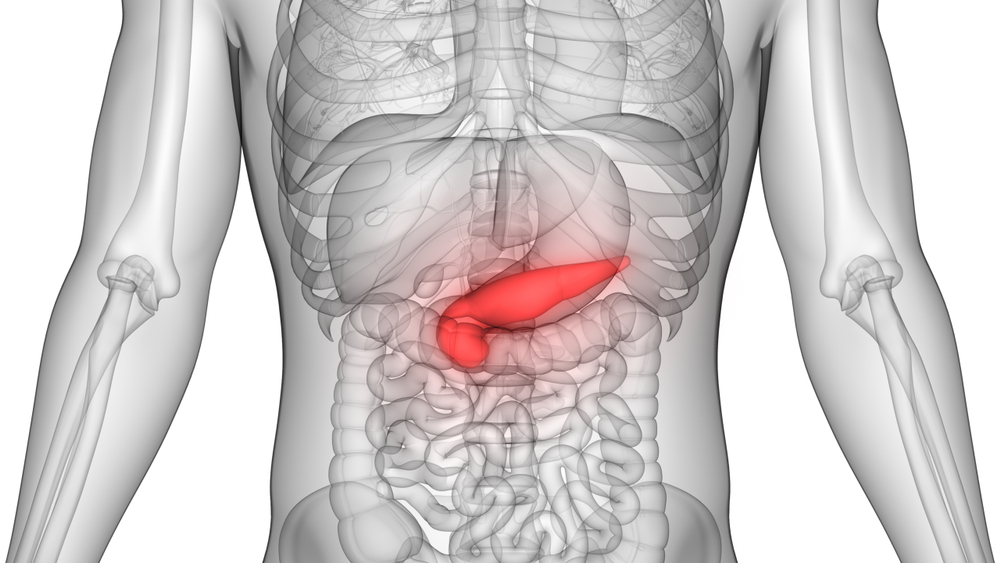Discover the Power to Heal: Treatments for Pancreatic Diseases Revealed

Acute pancreatitis is a pancreatic disease characterised by inflammation of the pancreas, which can cause significant pain and complications if not managed promptly. Timely and appropriate pancreatitis treatment is crucial for individuals diagnosed with acute pancreatitis.
In this blog, we'll delve into the various pancreatitis treatment options available, both surgical and non-surgical, to effectively manage this pancreatic disease. Additionally, we will discuss what causes pancreatitis to provide a comprehensive understanding of the pancreatic disease.
Understanding Acute Pancreatitis
A. Definition and Symptoms
Acute pancreatitis is the acute inflammatory condition of the pancreas, which is a vital organ involved in digestion and hormone regulation. The inflammation can cause the release of digestive enzymes, leading to self-digestion and damage to pancreatic tissue. Common symptoms include severe abdominal pain, nausea, vomiting, and fever. The pain is usually present in the upper abdomen and can radiate to the back.
B. What Causes Pancreatitis?
Here's what causes pancreatitis:
- Gallstones: The most prevalent cause of acute pancreatitis is the presence of gallstones. These stones can obstruct the pancreatic duct, leading to inflammation.
- Alcohol Consumption: Chronic and excessive alcohol consumption can contribute to acute pancreatitis. The actual mechanism is not completely understood but is thought to involve the toxic effects of alcohol on pancreatic tissue.
- Medications: Certain medications like corticosteroids, thiazide diuretics, and certain antibiotics, have been associated with an increased risk of developing acute pancreatitis.
- Other Risk Factors: Obesity, family history of any type of pancreatitis, smoking, and certain medical conditions like hypertriglyceridemia can increase the likelihood of developing acute pancreatitis.
Non-Surgical Treatment Options for Acute Pancreatitis
A. Fluid and Nutritional Support
In cases of acute pancreatitis, the pancreas may not function optimally, leading to malnutrition and dehydration. Early fluid resuscitation is essential to maintain hydration and prevent complications. Additionally, enteral nutrition, which involves providing nutrients through a tube directly into the stomach or small intestine, is preferred over parenteral nutrition (intravenous feeding) to boost healing and lessen the risk of infection.
B. Pain Management
Managing pain is a crucial aspect of acute pancreatitis treatment. Pain medications such as analgesics and NSAIDs can be used to alleviate pain. However, caution should be exercised with NSAIDs, as they can sometimes worsen the condition. Pancreatic enzyme supplementation may also be prescribed to aid in pain relief by reducing pancreatic enzyme activity.
C. Antibiotics and Infection Control
In cases where acute pancreatitis becomes complicated by infection, antibiotics may be necessary to control the infection. Infection control measures, including strict hygiene practices and proactive surveillance, are vital to prevent complications such as abscesses or sepsis.
D. Management of Complications
Acute pancreatitis can lead to various complications, including the formation of pseudocysts, pancreatic necrosis (tissue death), or abscesses. Non-surgical interventions, such as percutaneous or endoscopic drainage, can be employed to manage these complications. These processes involve the insertion of a catheter or endoscope to drain fluid or remove necrotic tissue, lessening the risk of infection and promoting healing.
Surgical Treatment Options for Acute Pancreatitis
A. Indications for Surgery
In some cases, surgical intervention becomes necessary in the management of acute pancreatitis. Major cases that do not respond to medical management or complications requiring surgical attention are the primary indications for surgery. Surgical consultation should be sought when the patient's condition deteriorates, or if infection, necrosis, or organ failure develops.
B. Surgical Procedures
- Cholecystectomy: Gallstone pancreatitis often necessitates the removal of the gallbladder (cholecystectomy) to prevent future attacks. This procedure is typically performed during the same hospital admission once the patient stabilises.
- Pancreatic Necrosectomy: When pancreatic tissue becomes necrotic due to acute pancreatitis, it can lead to persistent infection and worsening of the condition. Pancreatic necrosectomy, which involves the removal of dead tissue, is performed to control infection and promote healing. This procedure can be challenging and may require an open surgical approach or minimally invasive techniques, such as laparoscopy or endoscopy.
The Role of Lifestyle Changes and Long-Term Management
A. Addressing Underlying Causes
To effectively manage acute pancreatitis and prevent recurrence, it is essential to address underlying causes. Lifestyle modifications play a crucial role in this regard. For individuals with gallstone-related types of pancreatitis, the removal of the gallbladder and adopting a low-fat diet may be necessary. For those with alcohol-induced pancreatitis, complete alcohol cessation is critical.
B. Follow-Up Care and Prevention
Regular check-ups and ongoing monitoring are essential for individuals with a history of acute pancreatitis. These visits allow healthcare professionals to assess the effectiveness of treatment, identify potential complications, and provide guidance on preventive measures. Emphasising the importance of a healthy lifestyle, including a well-balanced diet, regular exercise, and avoidance of triggers, is crucial in preventing future episodes.
Conclusion
Acute pancreatitis is a very severe condition that requires prompt and appropriate treatment to prevent complications and promote healing. Thе treatment of acute pancreatitis includes both surgіcal and non-surgіcal methods.
Thesе mеthods arе customised for еach patient's condition and undеrlying causes. Fluid and nutritional support, pain management, infection control, and non-surgical interventions are commonly employed treatment options.
Surgical interventions, including cholecystectomy, pancreatic necrosectomy, or pancreaticoduodenectomy, are reserved for severe cases or complications. Lifestyle changes and long-term management are also essential in preventing recurrence and maintaining overall health. If you see symptoms of acute pancreatitis, it is crucial to seek medical attention promptly for an accurate diagnosis and appropriate treatment.






